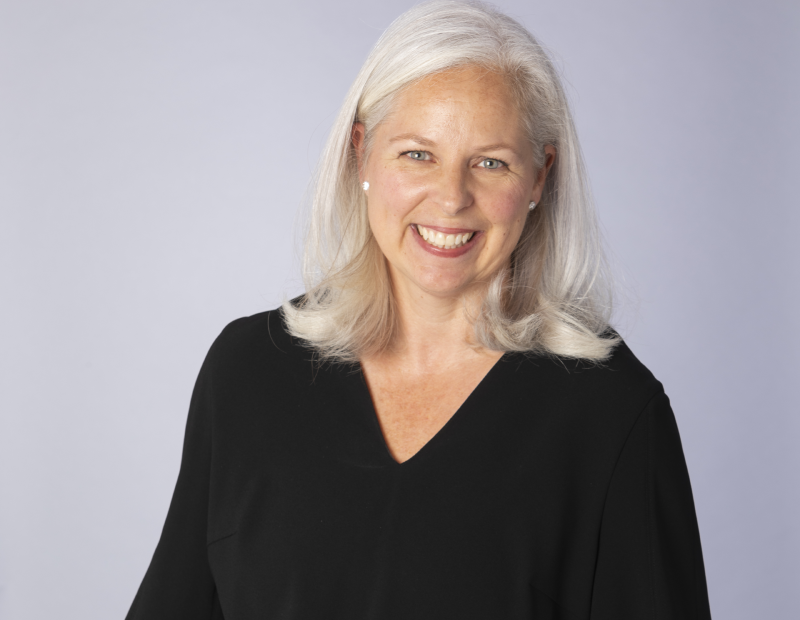Blackstone’s Co-Head of Real Estate Kicks Off ULI Fall Conference
Cash flow growth will be king, according to Kathleen McCarthy.
How is Blackstone dealing with rising interest rates, inflation, and an impending recession? They are really just staying the course.
“I feel like we have been working on a portfolio that will perform in this environment for a long time,” said Kathleen McCarthy, global co-head of Blackstone Real Estate, at the opening session of the ULI Fall Conference.
Eighty percent of Blackstone’s $550 billion real estate portfolio is invested in warehouse, residential rentals, hotels, and lab office space. These concentrations, she said, should provide the cash flow growth that can offset the impacts of higher debt costs, worsening cap rates and rising prices.
Blackstone will also, of course, benefit from its scale. The company’s size, McCarthy noted, is “pure advantage” because of the information its own portfolio generates. “One of the skills we have developed is how to quiet the noise and listen to the real estate we have now and what it is telling us,” she said. The company also has scale of capital and deep experience seizing opportunities that arise from dislocation. “I think that sets us up really well—that combination of information, capital and talent,” she added.
Blackstone’s Convictions
When picking investments, McCarthy said, Blackstone looks at not just what is happening in real estate but in the world more broadly. Which real estate types will benefit from larger trends, and which won’t? In addition to finding sectors with strong demand outlooks, Blackstone also focuses on sectors with shorter lease terms in order to capture cash flow growth.
“Logistics has been our highest conviction theme for over 12 years now because of the persistence of the trend of goods moving online—of our whole lives moving online,” McCarthy commented.
Ecommerce growth, the realignment of supply chains, and retailers’ increasing need for warehouse space as the economy softens is creating a “triple-layer cake” of demand against relatively modest supply, McCarthy said. “When we look at our portfolios around the world, we see rent growth in the U.S. markets at 30 percent; Europe, notwithstanding all its challenges, 20 percent; and Asia somewhere in between those two.”
Residential real estate is another important conviction theme for Blackstone. The company’s massive portfolio spans urban and suburban, market-rate and rent-regulated, LIHTC, single-family rentals, and student housing. The company “supersized” its student housing portfolio this summer with the purchase of American Campus Communities.
“I try to remind folks that what is happening in the for-sale market—the upward costs in ownership—really drive demand for rental housing in all forms,” she said.
This year, Blackstone formed April Housing to create solutions and capital to increase the supply of affordable housing. The company was formed after Blackstone’s purchase of American International Group and Cornerstone Group. McCarthy said governments at all levels can do more to increase the supply of affordable housing, and the real estate industry needs to be in conversation with the government about what they see and about solutions.
“When we think about what is driving persistent inflation, so much of it comes back to the undersupply of housing that’s been building up since the Financial Crisis,” said McCarthy.
Blackstone is also enthusiastic about hospitality. “There is a like a 30-plus year trend line that goes up to the right as far as demand for travel,” she said. That trend was interrupted by the pandemic, but it is coming back at varying paces throughout the world, though not for every asset.
The company’s hotel portfolio benefits from “lessons learned over a long period of time,” McCarthy said. As a result, Blackstone owns super-special, high-end properties globally and those offering more affordable price points, like Extended Stay America (in partnership with Starwood Capital Group) and Great Wolf Lodge (with Centerbridge Partners). During a recession, she noted, people still take vacations. They just adjust the distance and the price they pay. Hospitality is also a great place to be in an inflationary market because of “the one-night leases,” she said.
Lab Office Explosion
The life science boom, McCarthy remarked, is “one of the more fascinating things” that has happened to the industry. Only five years ago, lab office tenants were primarily pharmaceutical companies in secluded suburban campuses. Today, there is a whole universe of tenants that want to be in the nation’s research and medical capitals.
“The life science revolution took hold,” she observed. “We went, as an ecosystem, from focusing only— or almost purely—on pharmaceuticals to thinking much more broadly about health and all the ways you can enhance it and address ailments.”
In 2020, Blackstone took BioMed Realty private and concentrated its assets in what McCarthy called the world’s five best lab office markets: Boston/Cambridge, San Francisco, San Diego, Seattle and Cambridge, England. “We want our capital to be where companies want to be,” McCarthy said.








You must be logged in to post a comment.